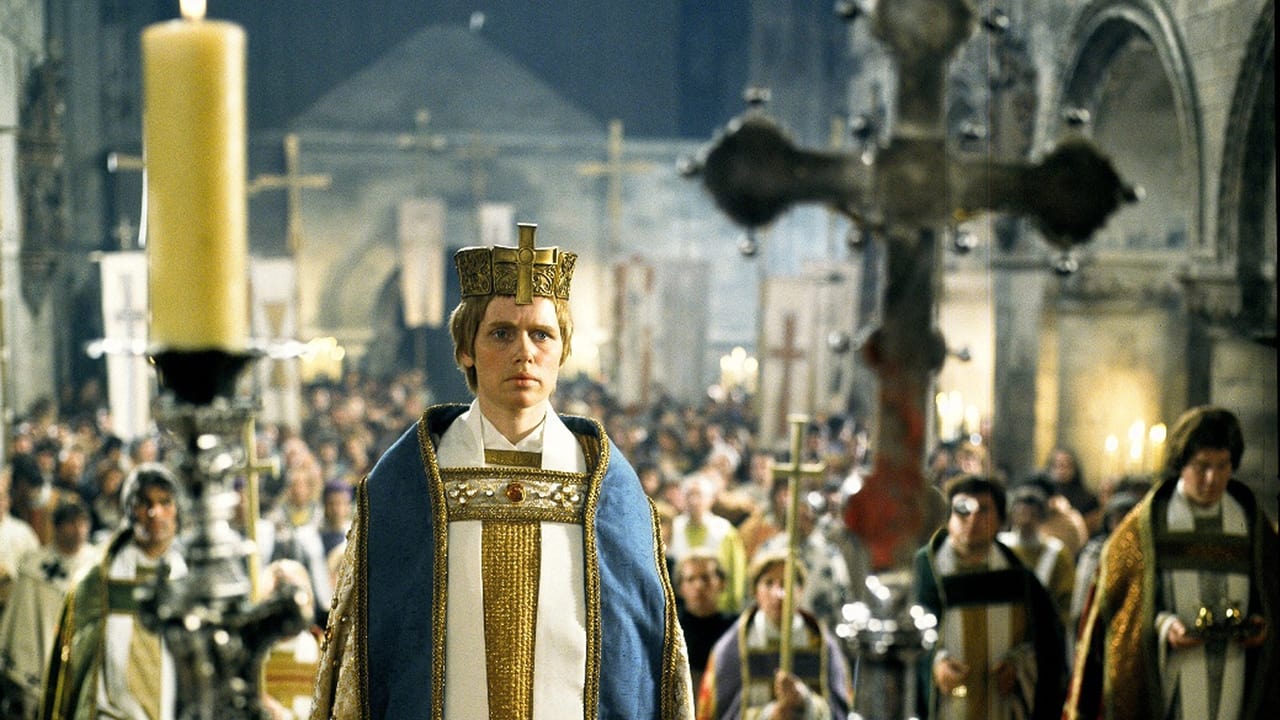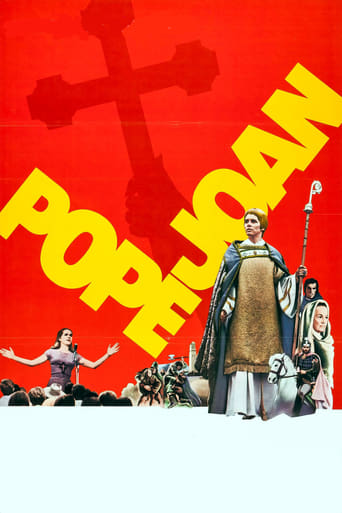


SHE...WHO WOULD BE POPE A must-see film. Franco Nero is so gorgeous in period dress (remember CAMELOT) he should never be seen in anything but costume drama. When he appears on screen you can feel his charisma... He's the love interest, and you can't help but envy the actresses who worked with him, but it's a woman's story and it is Liv Ullmann as the woman who would be - and probably was - the Pope, who carries the picture. As an actress she can do almost anything and in this picture does it most eloquently. She's touchingly vulnerable as a young girl, imperious as the Pope, heart-breaking as a desperate woman facing an impossible end. It contains all the best ingredients of a film. A fabulous movie, not to be missed!!
... View MoreSHE WHO WOULD BE POPEI really enjoyed this film as a real aficionado of historical faction and legends. Movie buffs who yearn for renowned actors whose sex appeal and charisma fill up the screen, as soon as they appear without uttering a word, would also find this motion picture enthralling. Franco Nero as Prince Louis, with blazing blue eyes brimming over in sensuality , becomes Emperor, conquering both Infidels and the Vatican. Although Jeremy Kemp, has a small role, whose pockmarked face, as handsome as it is rugged and scarred with life, makes him so credible as Joan's bible thumping father. Maximilian Schell, in his part as Brother Adrian is yet another from this large cast of famous faces who are a pleasure to watch as they captivate and capture the audience as they embrace their characters. The beautiful Lesley-Ann Downe although very young, is not as innocent or virtuous as she looks. No less are any of the remarkable cast such as the enchanting hero/heroine Liv Ullman, whose transformation from a nun to a priest is seamless, that makes the two hours of SHE..WHO WOULD BE POPE such compelling viewing. Although the setting is in the Dark Ages, there is a lightness in the way the unpleasant events are portrayed that make the reality of the harshness of life in that time, acceptable to all, from rape, pillage, murder and forbidden love. The Evangelicals haven't changed their book or mantras and the flowing robes and costumes of the clergy have all remained the same in authentically reproduced settings and lavish scenery. This story had to be retold in its original uncut form, sliding in and out of millennia, to fully understand how the world has turned despite that we, as individuals remain the same. The psychologist analysing a woman claiming a former life as Pope, ensures a multifaceted film that would appeal to a wide audience. SF
... View MoreThe early 1970's was my favourite period in recent cinema history, classics such as Kubrick's Clockwork Orange, Skolimowsky's Deep End and Visconti's Death in Venice abound; but there are some, less than ringing endorsements of the era, this half-forgotten movie being one.Liv Ullman, the embodiment of Scandinavian sang-froid, the epitome of ephemeral solemnity, plays Joan, a pious and youthful nun, who travels from a medieval convent, burnt down by Saxons, raping and pillaging, as if they misconstrued it for a set on a Ken Russell film, to Rome where disguised as a (rather attractive) young man, she wins her spurs, becomes a cardinal and eventually the first - and possibly last - female pope.The trouble is, although Liv's performance is full of meaning and her fights against the alleged sin of lust, particularly enthralling, the editing, jumpiness and preposterousness of some scenes, leave an anxious viewer in need of redemption elsewhere.True, it is interesting to see actors of the time - Lesley Anne Down, Maximillian Schell, Trevor Howard and Olivia de Havilland - giving robust performances, but a sandwich with an attractive filling is hardly worth eating if the bread is stale. And this is a stale mish mash, which ultimately fails to satisfy. It is a shame. The theme is interesting, whether the story is true or not. Given the current arguments amongst many religions on the role of women, it has significance for us in the 21st Century.The scenery around Brasov, Romania, where it was filmed, which I visited post Ceausescu, is exemplary. Mind you, maybe the reason for the film's disjointed nature is just that - that the dictator, in his first flush of dictatorial youth, was in charge of production. There again, maybe Ceausescu was a woman. Now that would be a tale worth telling...
... View MoreI saw the film on TV, quite by chance. I found the film gripping: the story, the atmosphere and the historical detail. I have no religious interest, but it made me curious to find out more about 'pope Joan'. The film is a work of fiction based on a legend, with very little factual basis. Nevertheless, one could really get a sense of life in those times (9th century Europe). Poverty, illiteracy, corruption. The place of women. The violence, that life was worth very little. Sadly, I think much of the world is just like that today, so perhaps it is a little window on humanity.
... View More